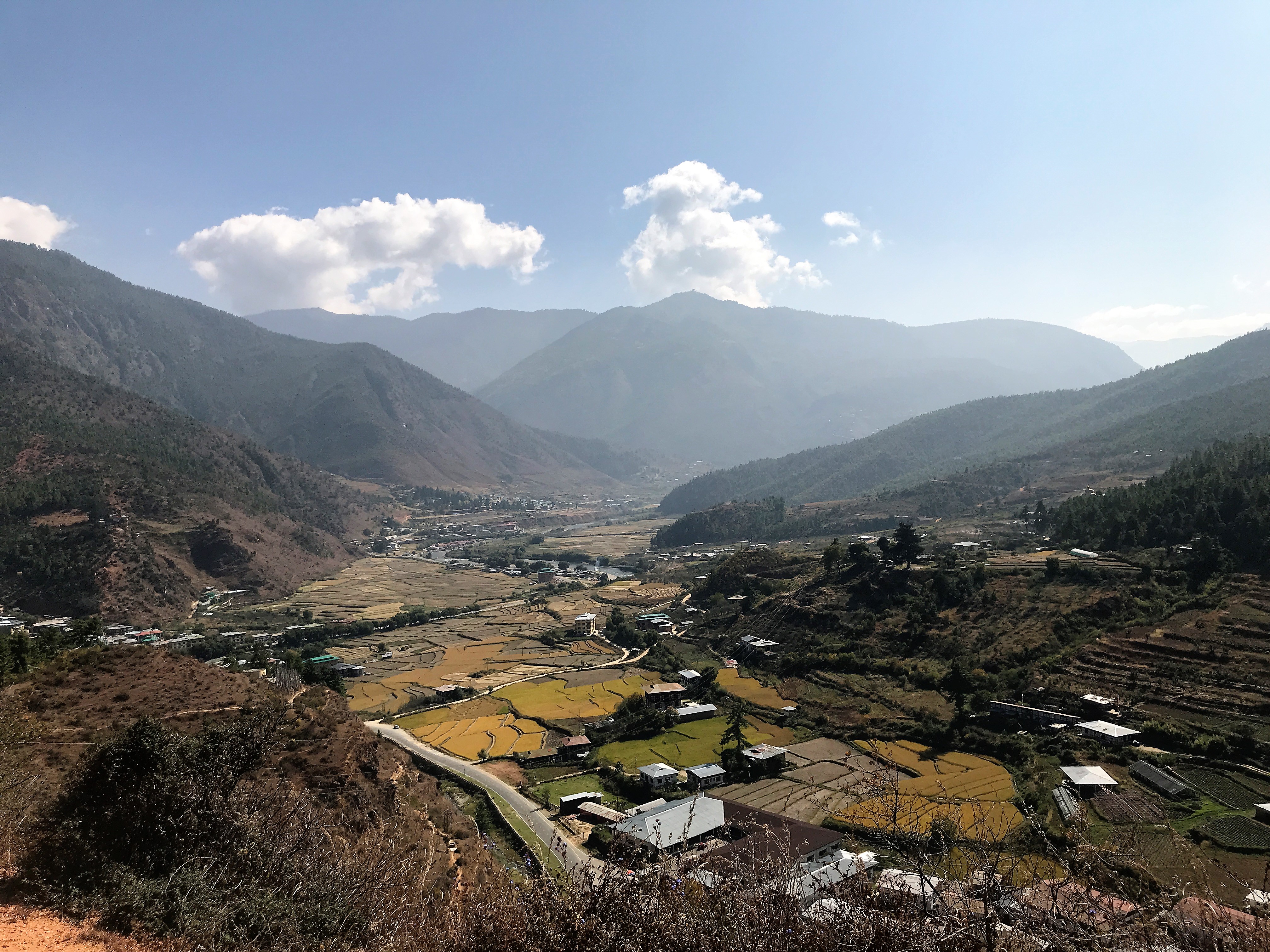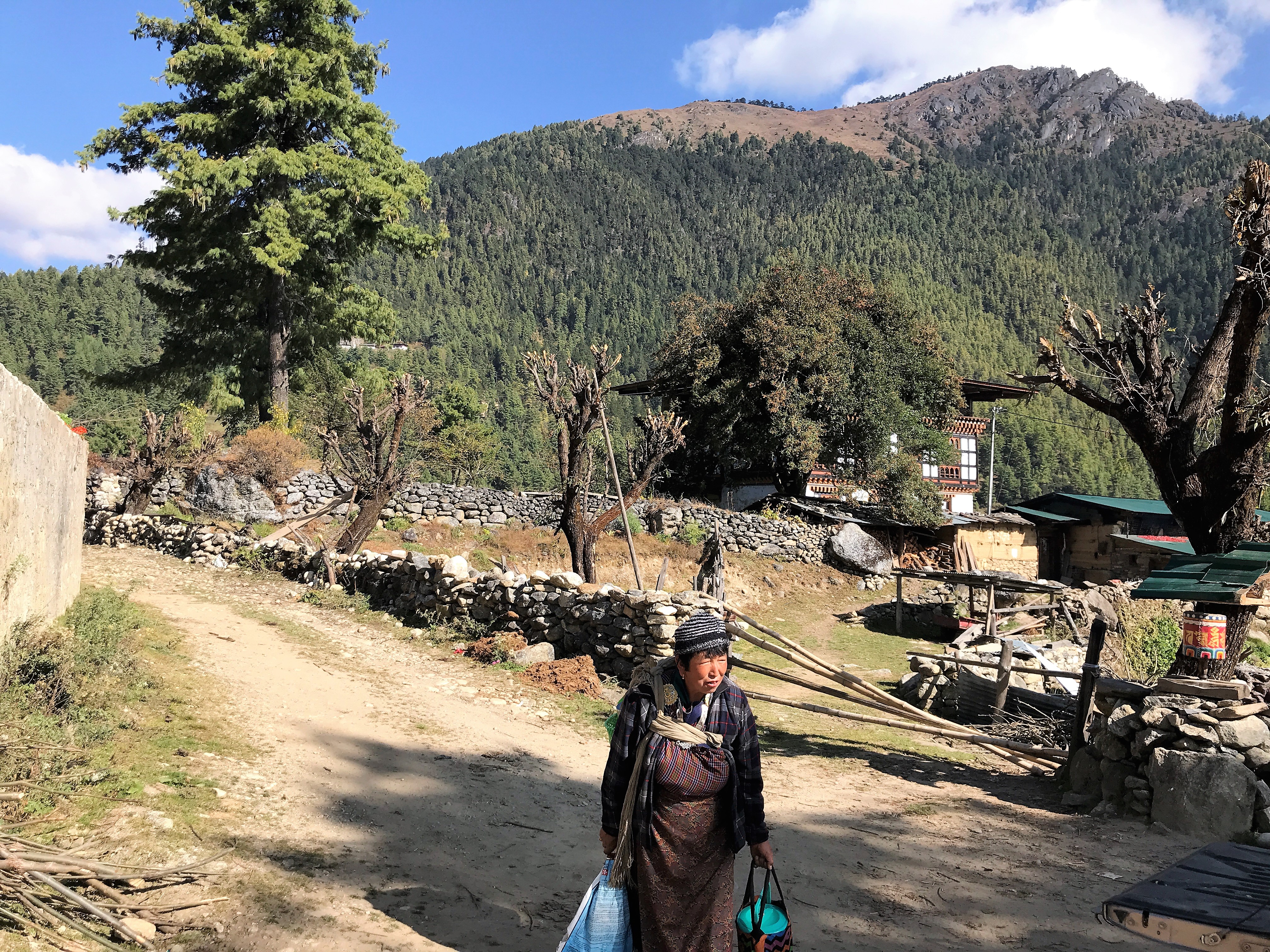Adaptation Fund Enhances Access to Climate Finance in Bhutan
Adaptation Fund Board Accredits Bhutan Trust Fund for Environment Conservation as Adaptation Fund’s 28th National Implementing Entity Under Direct Access
Washington, D.C. (January 31, 2018) — A small, mountainous and landlocked country that is vulnerable to climate change, Bhutan took a strong step forward in its commitment to adapt to climate change on January 25 when the Bhutan Trust Fund for Environment Conservation (BTFEC) was accredited by the Adaptation Fund as Bhutan’s first National Implementing Entity (NIE) under Direct Access.
Direct Access is a climate finance modality pioneered by the Adaptation Fund that empowers developing countries to access funds and design and implement climate change adaptation projects directly through accredited national institutions. BTFEC is the Fund’s 28th NIE to become accredited around the world with the capability to develop effective adaptation projects for the most vulnerable communities in developing countries.
As a least developed country (LDC), Bhutan is one of 13 LDCs or small island developing states (SIDS) that make up a considerable share of the Adaptation Fund’s NIEs (46%).
“This is great news not only for us in the BTFEC but for the nation as well, as it will go a long way in supporting the nation in its quest to combat climate change and its adaptation issues in the country,” said Dr. Pema Choephyel, Director and CEO of BTFEC.
The NIE accreditation process often helps countries build their national capacities from within to adapt to climate change over the long term, by enhancing their own local capabilities, ability to identify and manage effective, localized and country-led projects, as well as apply principles of the Adaptation Fund’s environmental, social and gender policies – which foster human rights, gender equality, vulnerable and marginalized groups and biodiversity conservation in Fund projects.
In Bhutan’s case, the accreditation process was very fast and took less than 15 months from the time BTFEC submitted its application to the Adaptation Fund in November 2016.
“Bhutan is already firmly committed to addressing climate change; 60% of its land is protected as forest and it sequesters more carbon than it emits. It also is very committed to adapting to the adverse effects of climate change. But as an LDC, international support is key for Bhutan, so we are very pleased with this result,” said Michael Kracht, Chair of the Adaptation Fund Board. “We also see BTFEC as having potential to become a role model down the road through activities such as our NIE south-south cooperation program.”
Bhutan and BTFEC have a history of being active in the climate and conservation fields. BTFEC has successfully implemented environmental projects in the past, and its mission is “to promote the socio-economic welfare of Bhutanese citizens by funding conservation of their flora, fauna, diverse eco-system and biodiversity; and addressing the adverse effects of development on Bhutan’s natural environment.”
Further, during the 15th UN Conference of Parties in Copenhagen eight years ago, in its “Declaration of the Kingdom of Bhutan – Land of Gross Happiness to Save our Planet”, Bhutan declared its intent to remain carbon neutral and adapt to climate change. It remains progressively committed to those efforts and preserving ecosystems today. However despite being considered a “carbon sink”, it is still vulnerable to the effects of global emissions.
Nestled in the Himalayas between China and India, it has a fragile mountainous ecosystem and many economic development needs. The agriculture sector employs nearly 70 percent of the population, which is particularly vulnerable to changes in the climate. Crop types and food sources are paramount considerations, as the country experiences extreme weather and climate changes.
ABOUT the ADAPTATION FUND
Since 2010, the Adaptation Fund has committed US$ 462 million to support 73 countries, with nearly 5.5 million direct beneficiaries.
Communications: Matthew Pueschel, mpueschel@adaptation-fund.org or +1-202-473-6743
Attachments
| Attachment | Type | Size |
|---|---|---|
| Press release January 31, 2018 | 343 KB |





